Zu Weiqin MSE ’25
Computer Science and Technology, School of Information Science and Technology
Trained in the Artificial Intelligence and Digital Art Lab (AIDA), School of Creativity and Art (SCA)
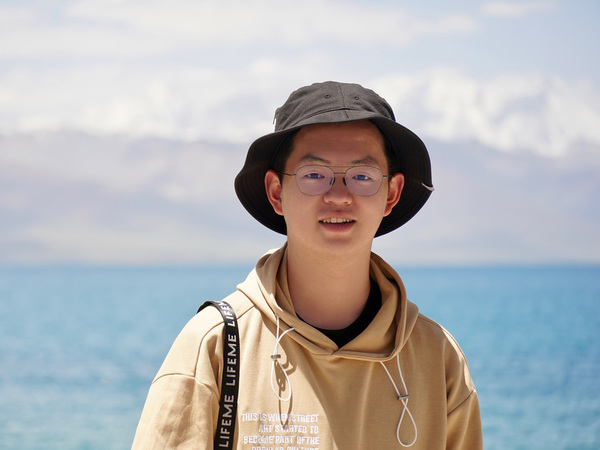
Undergraduate university: ShanghaiTech University
Post-graduation destination: Joint PhD Program by ShanghaiTech University and Beijing Institute for General Artificial Intelligence
Honors:
Graduate Excellence Award of ShanghaiTech 2025
Excellent Student Award of ShanghaiTech 2024-2025
“Another graduation season arrives, I reflect on a missed milestone: three years ago, the pandemic prevented me from attending my undergraduate ceremony. Now, donning my master’s gown, I finally fulfill that dream. Though I will continue my PhD at ShanghaiTech, this master’s graduation marks a pivotal node in my journey. Looking back, these years have been a tapestry of experiences, weaving growth and transformation.”
Discovering ShanghaiTech: A meeting and a choice
I still recall the days after the college entrance exam when I stood on ShanghaiTech’s campus during its assessment event, brimming with aspirations. Even though I had the chance to enroll in a more recognized top-tier university, ShanghaiTech’s open and innovative education philosophy and its diverse curriculum captivated me, drawing me to choose this path with conviction.
Entering university, I faced academic challenges beyond my expectations. As a student with a weak foundation in computer science, I struggled to keep pace with courses and grappled with how to learn effectively. From knowing nothing about programming in my freshmen year, to serving as a teaching assistant for the course Algorithm Design and Analysis in my sophomore year; from barely passing with a marginal GPA when I entered the university, to gradually earning A grades in multiple major courses, I realized that with sufficient effort, anything is possible.
During my undergraduate years, I was strongly drawn to courses offered by the SCA. I took the courses as my electives and served as an student assistant. This exposed me to inspiring faculty and SCA’s open, free-spirited atmosphere. In the summer of 2020, I attended the AIDA open day event, where a speech recognition project ignited my curiosity. Learning that natural language processing (NLP) was a cutting-edge field, I boldly contacted the professor and was fortunate to join AIDA, marking my first step into this interdisciplinary research.
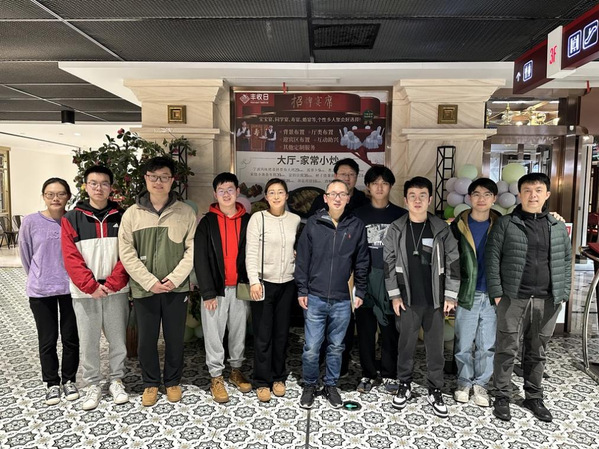
Group photo of AIDA members
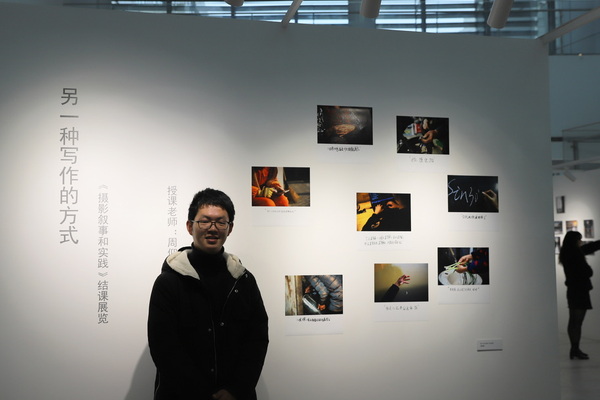
Display of my work in a photography course opened by SCA
Research exploration: From fog to focus
My research journey was far from smooth. Joining AIDA with only basic AI coursework and little practical experience, I started with data collection under the guidance of upperclass groupmate, Li Yang. He patiently explained algorithm theories to me, assisted me with debugging, and encouraged me to embrace trial and error, gradually building my confidence in research. My mentor in the lab frequently discussed my research progress, offering not only technical guidance but also instilling a rigorous research mindset, urging me to think deeply and express clearly. With their support, I mastered research workflows and honed practical skills.
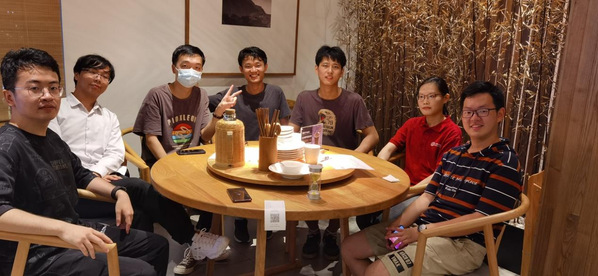
Team dinner upon joining AIDA
After entering my master’s study when research in large language models (LLMs) started to prevail, built on an upperclass groupmate’s work, I led a project for the first time and published my first paper as first author. Initially unfamiliar with basic research tools, I learned by doing. Leading a project was daunting—struggling to focus on key points, getting lost in details, and grappling with gaps between experiments and paper innovation. Despite challenges, I delved into literature, refined designs, and clarified my approach, ultimately advancing the project. This experience sharpened my research skills and clarified my future focus.
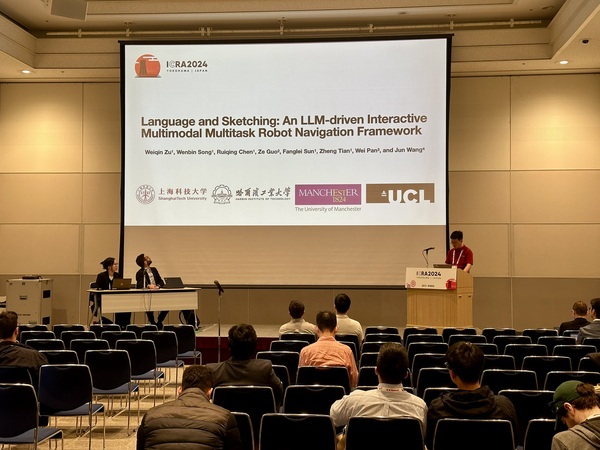
Presentation at an international meeting with topic on LLM
The course Introduction to Algorithmic Game Theory further led me to an exploration in AI theory. The study of multi-agent decision-making, balancing trade-offs, captivated me. I realized I was more drawn to how agents cooperate, compete, and coordinate like humans, rather than optimizing single agents. With LLMs advancing, I had ideas about how to integrate them into multi-agent collaboration research, exploring smarter and more flexible mechanisms. This passion has shaped my doctoral research direction.
Campus life: Diverse experiences and growth
Beyond academics and research, ShanghaiTech’s vibrant life opened new horizons. Before university, my life revolved solely around studies. At ShanghaiTech, I explored football, tennis, fencing, and photography—dabbling briefly but diversifying my perspective and boosting my confidence.
A highlight was participating in a volunteer teaching program as part of the university-organized social engagement in Pingtang County, Guizhou Province. Teaching and interacting with children brought pure joy and deepened my understanding of educational equity. My peers on this journey became lifelong friends, offering support through academic struggles and daily challenges.
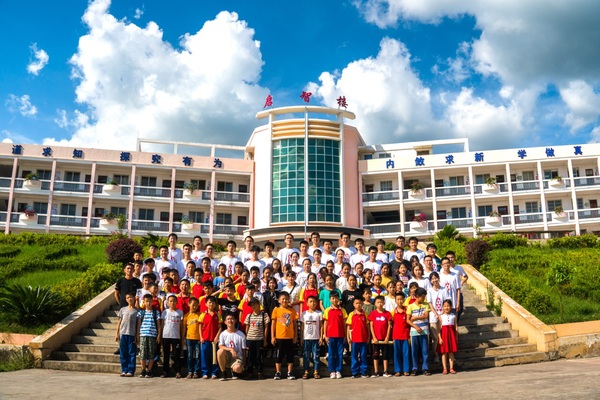
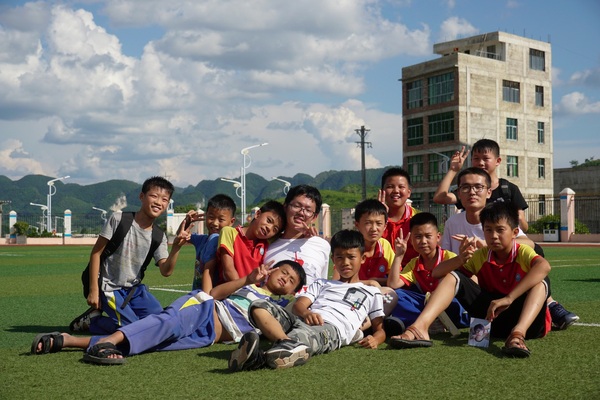
Photos in Pingtang County
In the AIDA, I also found a community of like-minded peers. We supported each other in research and bonded over shared moments, becoming vital pillars in each other’s campus lives.
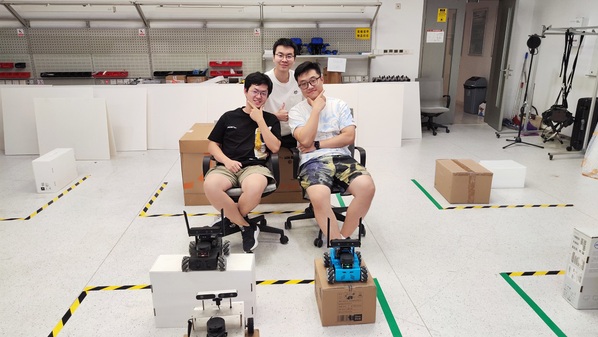
Graduate life
The past seven-year academic journey at ShanghaiTech is the most defining chapter of my life. From a naive high school graduate to a researcher capable of independent thought and bold choices, ShanghaiTech equipped me with knowledge, skills, and a better version of myself.
I am grateful for every professor’s guidance, every peer’s companionship, and my own perseverance. As I embark on my doctoral study at ShanghaiTech, I will continue to grow, keeping my eyes on the path ahead and my steps grounded.

